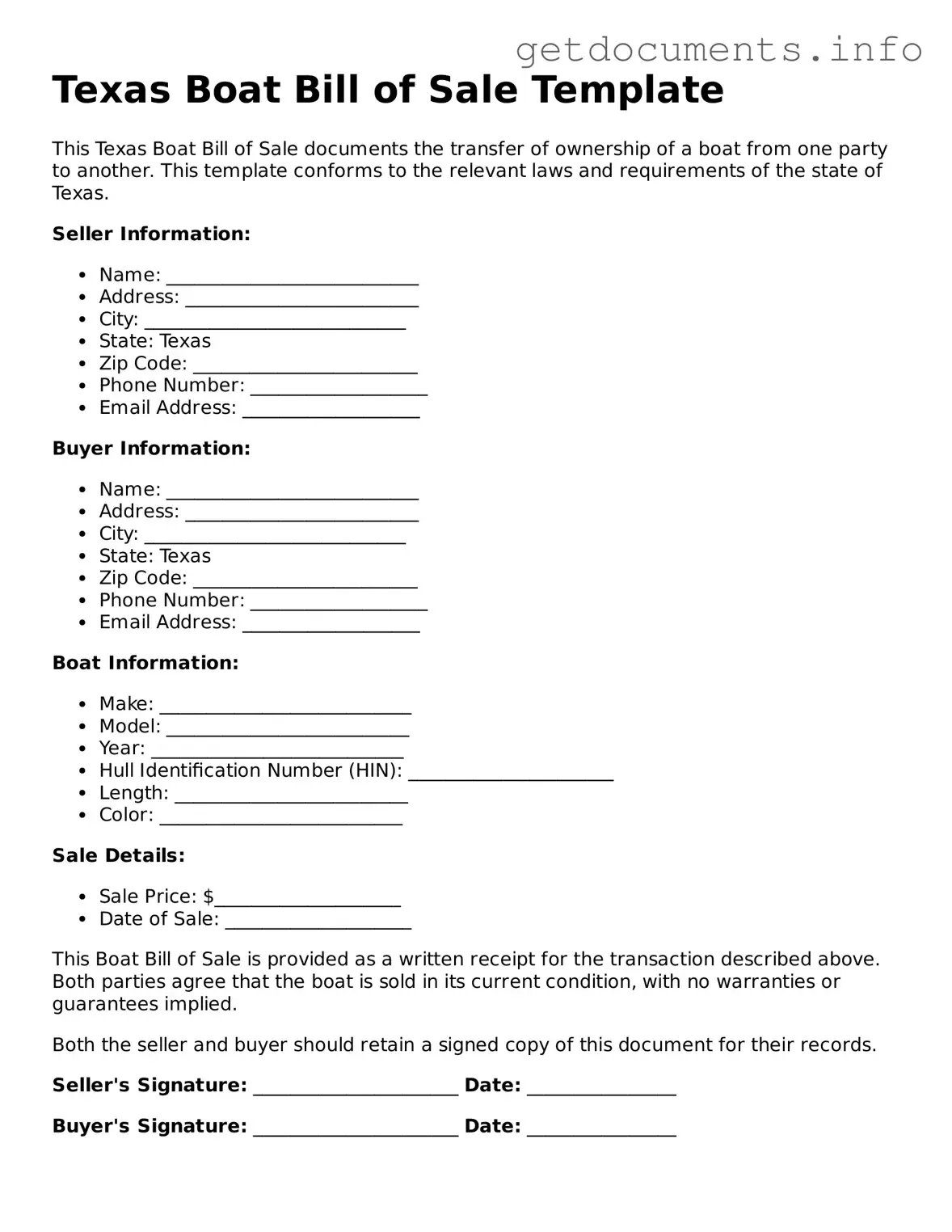Free Boat Bill of Sale Template for Texas
The Texas Boat Bill of Sale is a legal document that serves as proof of the transfer of ownership for a boat in the state of Texas. This form outlines essential details such as the buyer and seller's information, the boat's description, and the sale price. To ensure a smooth transaction and proper registration, it’s important to complete this form accurately.
Ready to fill out the Texas Boat Bill of Sale? Click the button below to get started!
Access Boat Bill of Sale Editor

Free Boat Bill of Sale Template for Texas
Access Boat Bill of Sale Editor
Got places to be? Complete the form fast
Fill out Boat Bill of Sale online and avoid printing or scanning.
Access Boat Bill of Sale Editor
or
⇩ PDF File
